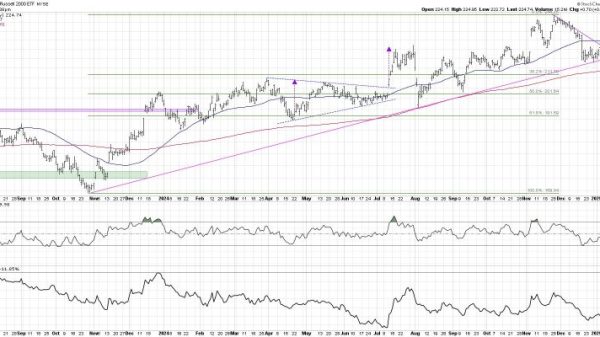President Biden met with top aides Monday to review potential American responses to a drone attack that killed three U.S. service members, as Republicans called for hard-hitting retaliation while the White House worried about getting dragged into a widening conflict in the Middle East.
The United States believes Iranian-backed militants were behind the drone strike, and Biden is ramping up a reelection campaign against a leading Republican opponent who boasts of his toughness against Iran, making any option politically perilous as well as militarily fraught.
Biden has promised to “hold all those responsible to account,” but exactly how he plans to do that remains unclear. The drone attack, which marked the first known time U.S. soldiers have been killed in the fallout from the Israel-Gaza war, killed three Army Reserve members from Fort Moore in Georgia who were stationed at a facility in Jordan and injured dozens more.
U.S. officials said they were part of a mission working with partners to counter the Islamic State in the region, and that their presence was unrelated to American support for Israel.
“We do not seek another war. We do not seek to escalate,” John Kirby, a spokesman for the White House National Security Council, told reporters Monday. “But we will absolutely do what is required to protect ourselves, to continue that mission and to respond appropriately to these attacks.”
Kirby declined to answer questions about the nature or timing of any U.S. retaliatory strike.
“I’m not going to telegraph any punches here from the podium, nor will I get in front of the president or his decision-making,” he said. “He’s met twice with his national security team yesterday and today. He’s weighing the options before him.”
As top Biden advisers debate how to calibrate their response, the United States is also in the midst of sustained military strikes against the Iranian-backed Houthis in Yemen in retaliation for their attacks on ships off the Arabian Peninsula. The militant group says it launched those attacks in solidarity with the Palestinians in Gaza.
In Jordan, the American troops were killed Sunday morning after U.S. air defenses failed to intercept a drone launched by an Iranian-backed militia, officials said, because it was mistaken for a friendly drone returning to the base.
Biden made no public appearances Monday, and his only comments on the deaths so far came at the end of a campaign event in West Columbia, S.C., on Sunday.
“We had a tough day last night in — in the Middle East,” the president said. “We lost three brave souls in an attack on one of our bases. And I’d ask you for a moment of silence for all three of those fallen soldiers.”
Sunday’s deadly attack raised anew questions about Biden’s handling of the Israel-Gaza conflict, which has involved a tight embrace of Israel as it mounts a military campaign against Hamas in Gaza that has killed more than 26,000 Palestinians. That Israeli onslaught is in response to a terrorist rampage by Hamas on Oct. 7, in which militants surged out of Gaza and killed more than 1,200 people, most of them civilians, and took another 253 hostage.
The war has set off a ripple of violence across the Middle East, much of it apparently fomented by militants allied with Iran. In addition to Sunday’s drone strike and the Houthi attacks, Biden officials are urgently trying to prevent open warfare between Israel and Hezbollah, a powerful Iranian-backed group based in Lebanon, on Israel’s northern border.
On Capitol Hill, Republicans slammed the White House for not hitting back faster, calling Biden weak and citing the Trump administration’s assassination of Quds Force commander Qasem Soleimani in 2020 as an example of a successful deterrent strike. Since Oct. 7, Iranian-backed proxy groups have launched more than 150 attacks on U.S. service members in the Middle East.
Rep. Don Bacon (R-Neb.), a member of the House Armed Services Committee, said any U.S. response should target Iran directly rather than going after the groups it supports.
“I can tell you Iran doesn’t care if their proxy forces get a black eye and bloody nose — they care if Iran gets a black eye and bloody nose,” said Bacon, a retired Air Force brigadier general who served in Iraq.
He added: “The comments from Kirby and other people saying they don’t want to escalate is total baloney. These guys always worry about escalating. It has already escalated.”
But Bacon, along with most Republicans, stopped short of calling for Biden to strike targets inside Iran. He said he would not support U.S. airstrikes deep inside Iran at this point but floated the idea of striking Iran’s peripheral oil export infrastructure or its navy. “There’s a way to get their attention without putting undue risk to our forces,” he said.
Rep. Michael McCaul (R-Tex.), chairman of the House Foreign Affairs Committee, said the United States could easily strike Islamic Revolutionary Guard Corps targets, not just Iranian proxies, in Iraq, Syria and Yemen. “I don’t think we should take any options off the table,” McCaul said.
Sen. Lindsey Graham (R-S.C.) was more direct: “Hit Iran now. Hit them hard.”
But Rep. Seth Moulton (D-Mass.), a Marine Corps veteran who served in Iraq, urged caution, criticizing Republicans for immediately demanding an all-out response.
“To the chicken hawks calling for war with Iran, you’re playing into the enemy’s hands — and I’d like to see you send your sons and daughters to fight,” Moulton said in a statement. “We must have an effective, strategic response on our terms and our timeline. Deterrence is hard; war is worse.”
Until the deaths of the U.S. service members, Democratic lawmakers had been more critical of Biden’s handling of the Israel-Gaza war than Republicans, who have praised Biden’s unwavering support of Israel despite rising pressure from many in his party to call for a cease-fire. But Biden’s decision not to immediately hit Iran or its proxies invited some of the fiercest criticism yet from Republican lawmakers.
Biden and his top aides for months have been focused on trying to prevent the Israel-Gaza war from spiraling into a broader regional war that could force the United States to become more directly involved. In the days after the Oct. 7 attacks, the administration dissuaded Israel from launching a direct assault on Hezbollah in Lebanon after Israeli officials received faulty intelligence that an attack from the militant group was imminent.
But in recent weeks, the escalation of hostilities in the region has increasingly become a reality, and U.S. troops have faced repeated attacks. That raises the stakes significantly, experts said.
“It’s a really tough balance to strike, because if they don’t hit back or don’t hit hard enough, you could just see a continuation of what has been,” said Brian Katulis, vice president of policy at the Middle East Institute. “There have been so many attacks [on U.S. troops] I’m surprised more deaths have not occurred.”
Some members of Congress are expressing discomfort with Biden’s handling of the war, though the overall number of critics remains small. A bipartisan group of House lawmakers sent a letter to the president on Friday arguing that he must seek authorization from Congress before launching additional strikes against the Houthis in Yemen. That letter followed one from four senators, two from each party, asking for the legal and strategic rationale behind the strikes and urging Biden to seek congressional authorization.
At the White House on Monday, Kirby was asked whether Biden had the necessary authority to respond to Sunday’s drone attack without approval from Congress. He adamantly defended the president’s ability to respond unilaterally, saying Article II of the Constitution gives the president the authority to protect U.S. troops.
At the same time, U.S. officials have been fervently working to secure the release of the remaining hostages held by Hamas in exchange for a pause in the fighting between Israel and Hamas. Officials are optimistic a deal is within reach, though some fear an escalation with Iran could impede the fragile negotiations.
“Every action can provoke a counterreaction that can be quite unexpected in different theaters,” Katulis said. “That’s because Iran and its networks have used the plight of Palestinians in their own propaganda.”
Biden’s advisers are sharply aware that the president’s actions in the Middle East have ramifications in the world of domestic politics. The president’s backing of Israel is weakening his support among younger voters and people of color, polls suggest. Former president Donald Trump, who leads the race to become Biden’s Republican opponent, has blamed Biden’s “weakness” for the drone attack.
At the same time, Israeli Prime Minister Benjamin Netanyahu has become increasingly defiant of Biden. Netanyahu has rejected U.S. demands that he scale back the war in Gaza, limit civilian casualties and allow more aid into the tiny enclave, where Palestinians are at risk of starvation and disease.
The risk of further escalation looms. Israel has been exchanging rocket fire with Hezbollah on the country’s northern border, and top Israeli officials have made clear they view the regular exchange of fire between Israel’s forces and Hezbollah as unacceptable. Top Biden officials were dispatched to the Middle East earlier this month to try to prevent a full-blown war from erupting between the two forces.
“We prefer the path of an agreed-upon diplomatic settlement,” Israeli Defense Minister Yoav Gallant said earlier this month. “But we are getting close to the point where the hourglass will turn over.”
The last time Biden faced the death of American troops at such a high-profile moment was in August 2021, when suicide bombers killed 13 service members in the midst of the chaotic U.S. withdrawal from Afghanistan. That prompted a sharp downturn in Biden’s approval ratings from which he has arguably never recovered.
The latest U.S. military fatalities add a new level of pressure on Biden, making it militarily and political untenable to avoid hitting back. Now, the president just needs to decide what that looks like.
“While we do not want a wider conflict with Iran, Iran seems to want a wider conflict with us,” said Jeremy Bash, a former top official at the CIA and Pentagon in the Obama administration. “We don’t need to play into their hands. But we also won’t let them kill Americans with impunity, so there will be consequences for Iran.”
Missy Ryan and Dan Lamothe contributed to this report.





























